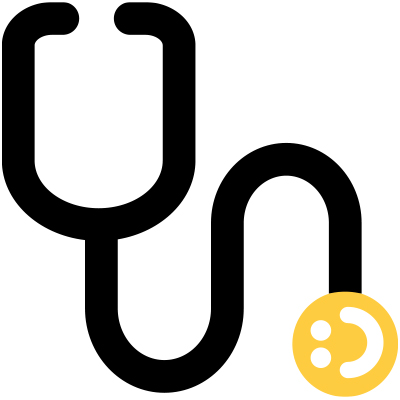
Practicing cardiologist Shiv Rao, who gave the 2025 Miller Lecture in May, is the CEO and founder of Abridge, an artificial intelligence-fueled system that is generating tremendous excitement among early adopters at Johns Hopkins and at hospitals across the country for its potential to humanize medicine.
Abridge uses generative AI to turn doctor-patient conversations into structured clinical notes that integrate in real time with electronic medical records. That relieves clinicians of the need to have their attention glued to the computer screen — rather than the patient — as they type in the seemingly endless stream of information required by today’s electronic systems. And patients can use an Abridge app on their phones to record their health care encounters, which creates a transcript that pulls out the most important points of the conversation for review later.
“Shiv Rao has revolutionized medicine by redefining both the patient experience and the provider experience,” says visionary Johns Hopkins radiologist Elliot Fishman, creator of the conversation series “Leading Change: Perspectives from Outside of Medicine” (see box). “It is a Renaissance man like Shiv — who has the computer background from Carnegie Mellon, medical training from the University of Pittsburgh as a practicing cardiologist and the humanity of learning from his father — who recognized that the most critical problem in medicine was the loss of humanity. All of that is changing and Shiv is leading a team at Abridge that is redefining our practices,” says Fishman, holder of the Elliot K. Fishman Professorship in Radiology.
Abridge is now being used by physicians at more than 100 health systems across the United States, including Memorial Sloan Kettering Cancer Center, Mayo Clinic, Duke Health and Johns Hopkins, where doctors praise it for reducing their administrative burden and allowing them to return their attention to patients.
“As a rheumatologist dealing with complex diseases, I rely strongly on the patient interview,” says Johns Hopkins rheumatologist Lisa Christopher, an Abridge user.
“Connecting with patients, taking an accurate history, and reassuring the patient that they are being heard is one of my favorite parts of being a physician.” Christopher is also part of Hopkins’ Colleges Advisory Program, where she teaches first-year medical students the art and practice of medical interviewing skills. “In recent years, I felt it was a bit disingenuous to model the medical interview for students like it was conversational with good eye contact. The reality was that I was frequently looking at a computer screen, badly typing, and hoping to try to maintain some kind of normal relationship with the patient that seemed genuine,” says Christopher, director of the Johns Hopkins Myositis Center. Abridge, she says “has brought back joy in medicine.” “It gives me back my natural communication style, as it allows me to look at my patient just like the ‘old days’ where I could appreciate the dialogue, eye contact and all of which makes human interaction such an important part of medical interviewing,” says the rheumatologist. “While there are still some growing pains, this digital scribe program has changed the way that I practice medicine for the better.” Rao has said he was inspired to create Abridge by his own experience (both as a physician and with his wife, as patients) as well as by that of his physician father, who had to retire early from medicine because “he just couldn’t type fast enough.”
“Connecting with patients, taking an accurate history, and reassuring the patient that they are being heard is one of my favorite parts of being a physician.” – Lisa Christopher
Rao’s lecture at Johns Hopkins in May marked the 22nd year of the annual Miller Lecture. Over the years, Miller Lecture speakers have varied — from authors to physicians, from poets to economists — but all have touched on a common theme: the crucial importance humanism holds for health and medicine.
The impactful series would not be possible, notes CIM Director David Hellmann, without the generosity of the Miller family — the late Mr. G. Thomas Miller and Mrs. Anne G. Miller, and their daughters and sons-in-law, Mrs. Sarah Miller Coulson and the late Mr. Frank L. Coulson Jr. and Mrs. Leslie Anne Miller and Mr. Richard Brown Worley.